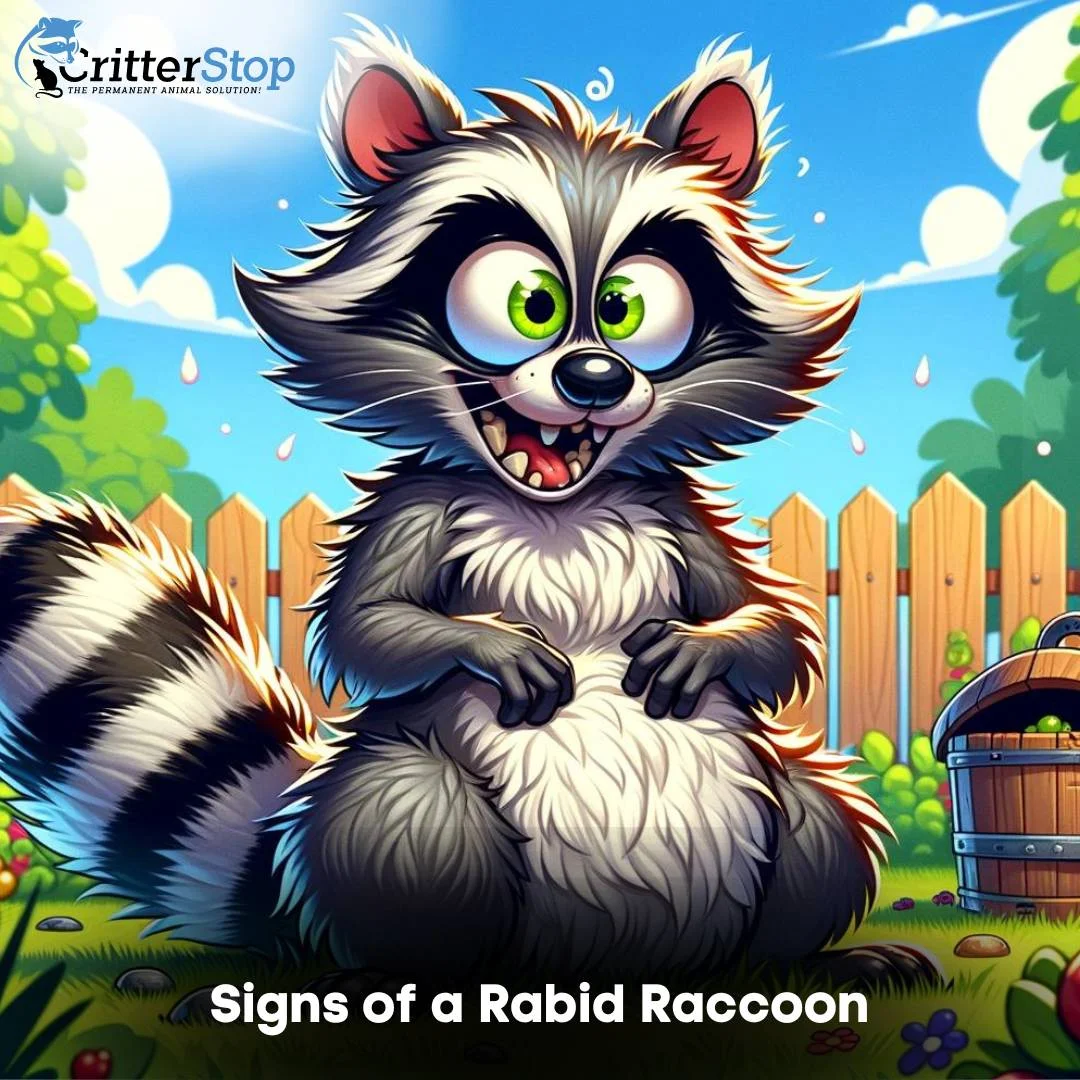
Welcome, nature enthusiasts and concerned citizens! We're embarking on a crucial journey to explore the signs of rabid raccoons and learn how to ensure the safety of our wild animals and communities. Join us as we dive into the intriguing world of these masked creatures and discover the importance of identifying and responding to potential threats.
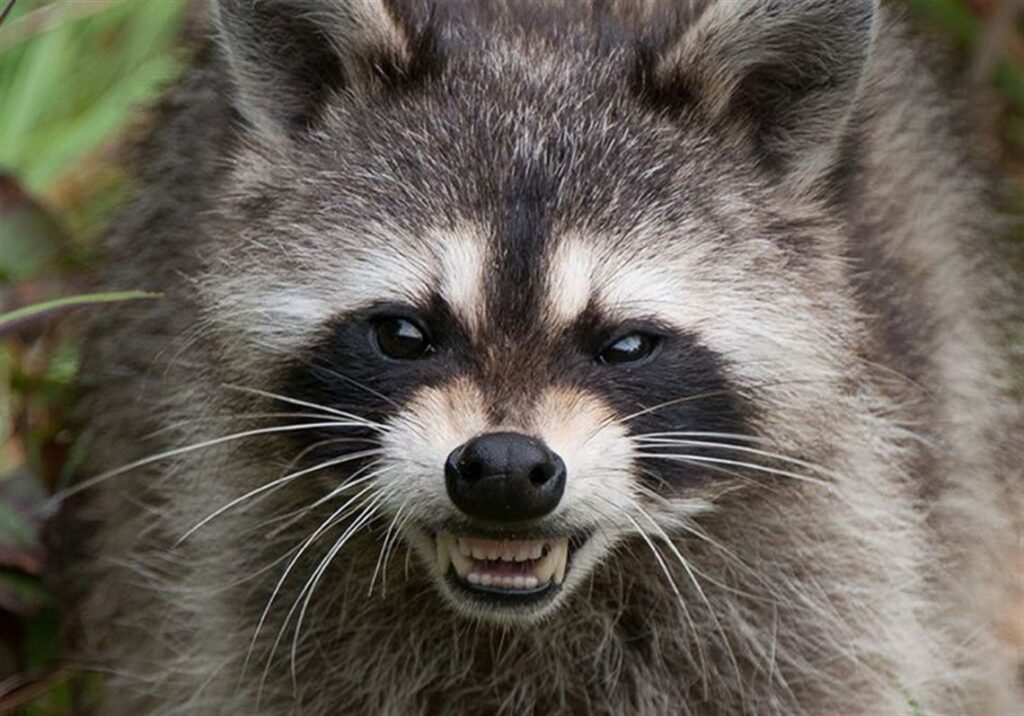
How to tell if a raccoon has rabies? Rabies, a sinister viral infection, affects the nervous system of mammals, including raccoons. It spreads primarily through the infected animal's or animals' saliva, commonly transmitted through bites or scratches. Raccoons can unwittingly become carriers of this virus, posing risks to other animals and humans alike. Getting rabies from raccoons is a risk that should be taken seriously.
Raccoons, those familiar yet enigmatic creatures of the night, have unfortunately gained notoriety as potential reservoirs for rabies. As they roam urban and rural landscapes, they can harbor and transmit the virus through their saliva, unknowingly putting other animals and people in danger. A raccoon foaming at the mouth is always a sign of trouble.
So, how do you know if a raccoon has rabies? Rabid animal raccoons may not wear capes, but a sick raccoon gives away their secrets through their behavior. What are 3 signs that a raccoon has rabies? Let's go one step ahead and offer two separate set of cues. Let's delve further into the signs that can help us spot raccoons rabies symptoms.
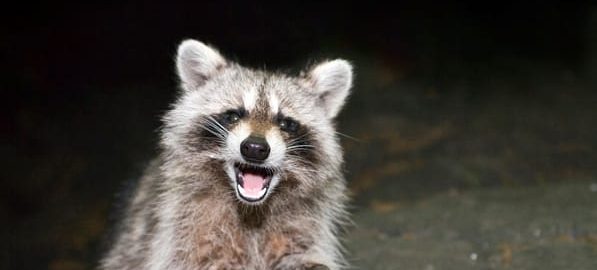
Raccoons are known for their curious and mischievous nature, often rummaging through trash cans and causing a ruckus in residential areas. However, they are also notorious carriers of rabies, a viral disease that affects the central nervous system of mammals, including humans. Rabies is a serious health concern, and it's important to understand how raccoons get infected with the virus to prevent its spread.
Rabies is typically transmitted through the saliva of an infected animal, usually through a bite or scratch. Raccoons can contract the virus from other infected animals, such as bats, skunks, and foxes. They can also get infected from other raccoons through fighting or mating. It's important to note that not all raccoons carry rabies, but it's difficult to tell if an animal is infected just by looking at it.
Rabies is a viral disease that affects the nervous systems of mammals, including raccoons. It is a serious issue in raccoons as it can be transmitted to humans and other animals through bites or scratches. If you see a foaming rabid raccoon, it's best to keep your distance from it.
Raccoons can get rabies through contact with other infected animals, such as bats, skunks, and other raccoons. The virus is typically transmitted through saliva, and raccoons can contract rabies by being bitten or scratched by an infected animal.
It is important to note that not all raccoons have rabies, and it is not a common disease in raccoon populations. However, it is still important to take precautions when encountering raccoons in the wild or in urban areas.
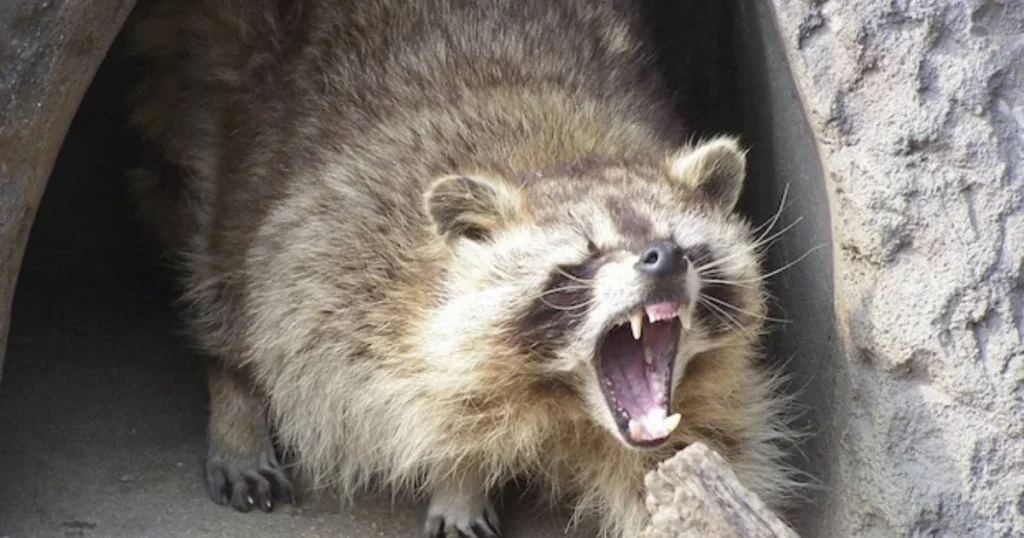
According to the Centers for Disease Control and Prevention (CDC), raccoons are one of the most commonly reported animals with rabies in the United States. However, the prevalence of rabies in raccoon populations varies by region and time of year.
In areas where raccoons are known carriers of rabies, it is important to take measures to prevent contact with the animals. This includes avoiding feeding raccoons, securing garbage cans, and keeping pets indoors at night.
Overall, while rabies is a serious concern for raccoons and humans alike, not all raccoons have the disease. It is important to take precautions when encountering raccoons in the wild, but there is no need to panic or assume that all raccoons are infected with rabies.
So, how to know if a raccoon has rabies? Rabies is a viral disease that affects the nervous system of mammals, including raccoons. It is transmitted through the saliva of an infected animal, usually through a bite. Raccoons are one of the most common carriers of rabies in North America. Here are some signs of rabies in raccoons that you should be aware of:
One of the most obvious signs of rabies in raccoons is foaming at the mouth. This is caused by excessive salivation, which is a common symptom of the disease. If you are wondering how do rabid raccoons act, raccoons may also have a wobbly or unsteady gait, and they may appear disoriented or confused. Other observable signs of rabies in raccoons include:
In addition to observable signs, there are also behavioral symptoms of rabies in raccoons. Raccoons may become more aggressive and attack without provocation. They may also lose their fear of humans and approach people or pets. Other behavioral rabies symptoms in raccoons include:
It is important to note that not all raccoons with rabies will exhibit all of these symptoms. Some may show only a few signs, while others may show none at all. If you suspect that a raccoon may have rabies, it is important to stay away from it and contact your local animal control agency immediately.
Signs of rabies in baby raccoons may include unusual aggression or lethargy, foaming at the mouth, disorientation, and unsteady movement. Additionally, changes in vocalization or behavior such as excessive vocalization or lack of fear towards humans can indicate rabies infection. If you suspect a baby raccoon may have rabies, avoid approaching it and contact animal control or a wildlife rehabilitator for assistance.
If you notice rabid raccoon behavior or sick raccoon symptoms, you must respond appropriately! In our experience providing raccoon removal services, at Critter Stop we always recommend having in mind the following things:
Rabies may try to rally, but we're here to put a stop to it! Let's see how we can safeguard our furry friends and our communities:
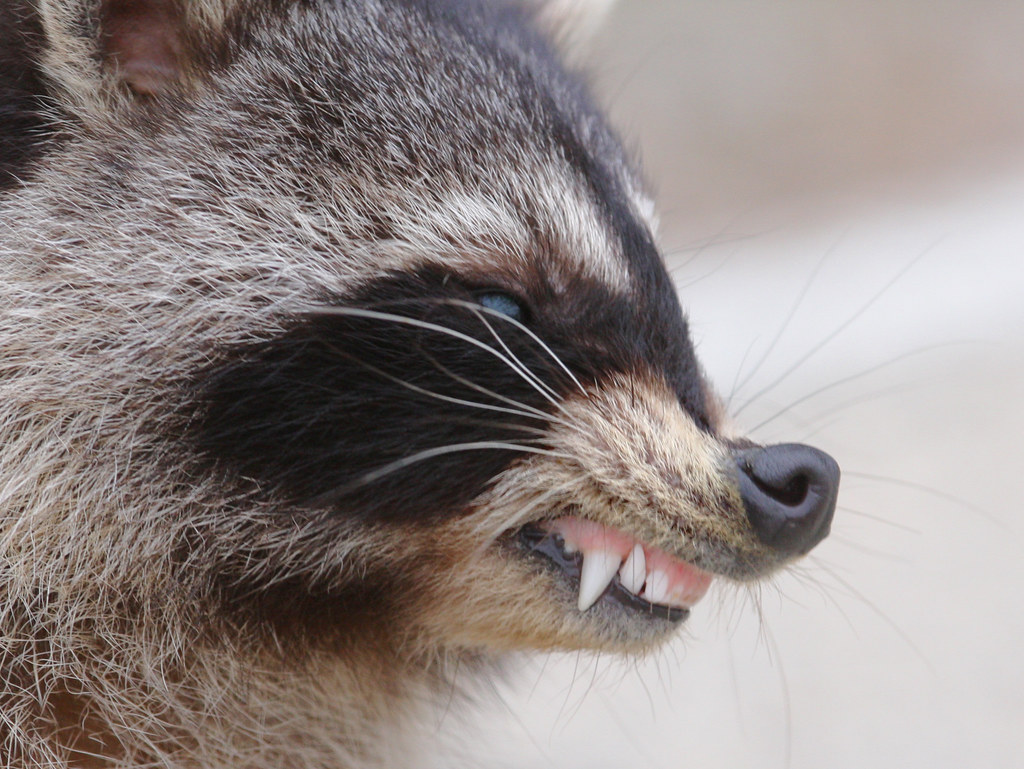
As we conclude our journey through the world of rabid raccoons and their impact on public safety, let's reflect on some crucial takeaways:
Remember, timing is everything. Detecting rabies early on is like finding the missing puzzle piece – it helps complete the picture. Acting swiftly when you suspect a case of rabies can make all the difference. By containing its spread, we're setting the stage for more positive outcomes and safeguarding the health of our communities.
Let's put the "unity" in community. Rabies prevention isn't a solo mission; it's a team effort. By joining forces and sharing our observations and concerns, we create a safety net that keeps wild animals and everyone protected. Our collective responsibility ensures that we can thrive alongside the wildlife that shares our environment.
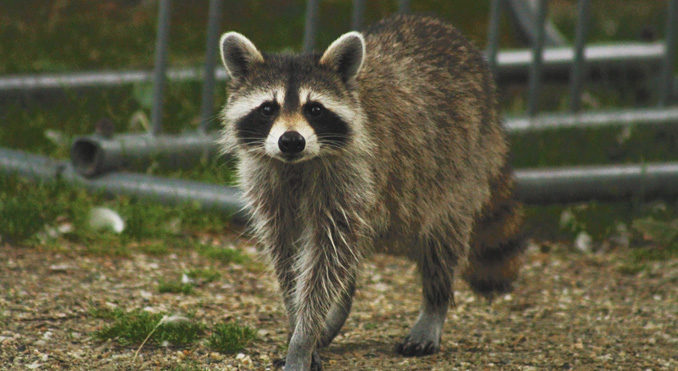
Raccoons are more than just those masked critters that frequent our neighborhoods. They play a vital role in our ecosystem. Let's treat them as friends, not foes. By respecting their habitat and behavior, we're contributing to the delicate balance of nature. Staying informed, cautious, and watchful allows us to coexist with these creatures safely.
So as you step back into the world, remember the signs, the actions, and the community spirit we've discussed. Stay vigilant, stay caring, and keep your eyes peeled for those masked marvels – the raccoons that add a touch of wildness to our urban landscapes. Stay safe, stay curious, and keep fostering a world where humans and wildlife can thrive side by side! If you need raccoon removal Dallas services, please call us at (214) 234-2616, in Critter Stop we are happy to assist you!
Raccoons can get rabies through exposure to the saliva or nervous tissue of an infected animal, usually through a bite. The virus then travels to the brain and spinal cord, causing inflammation and ultimately leading to the symptoms of rabies.
No, raccoons are not born with rabies. They can only contract the virus through exposure to an infected animal.
Baby raccoons can be born with rabies if their mother is infected with the virus. However, it is rare for baby raccoons to be infected with rabies.
The number of raccoons with rabies varies by region and year. According to the Centers for Disease Control and Prevention (CDC), there were 4,877 cases of rabies in raccoons in the United States in 2019.
Raccoons are nocturnal animals, but they can have rabies at any time of day. It is important to avoid contact with raccoons, regardless of the time of day.
Yes, rabies can be fatal to raccoons. The virus attacks the nervous system, causing paralysis and eventually death. However, not all raccoons with rabies will die from the virus.
No, not all raccoons have rabies. Rabies is a viral disease that can affect any mammal, including raccoons, but only a small percentage of raccoons actually carry the virus. It's important to be cautious around wild raccoons and seek professional help if you encounter one showing signs of illness or aggression.
Yes, rabid raccoons can exhibit aggressive behavior. Rabies affects the central nervous system, causing animals to become disoriented, irritable, and potentially aggressive. If you encounter a raccoon displaying unusual aggression or other signs of illness, it's important to keep your distance and contact animal control or a wildlife professional for assistance.
Visit our Critter Library and learn more about our furry friends